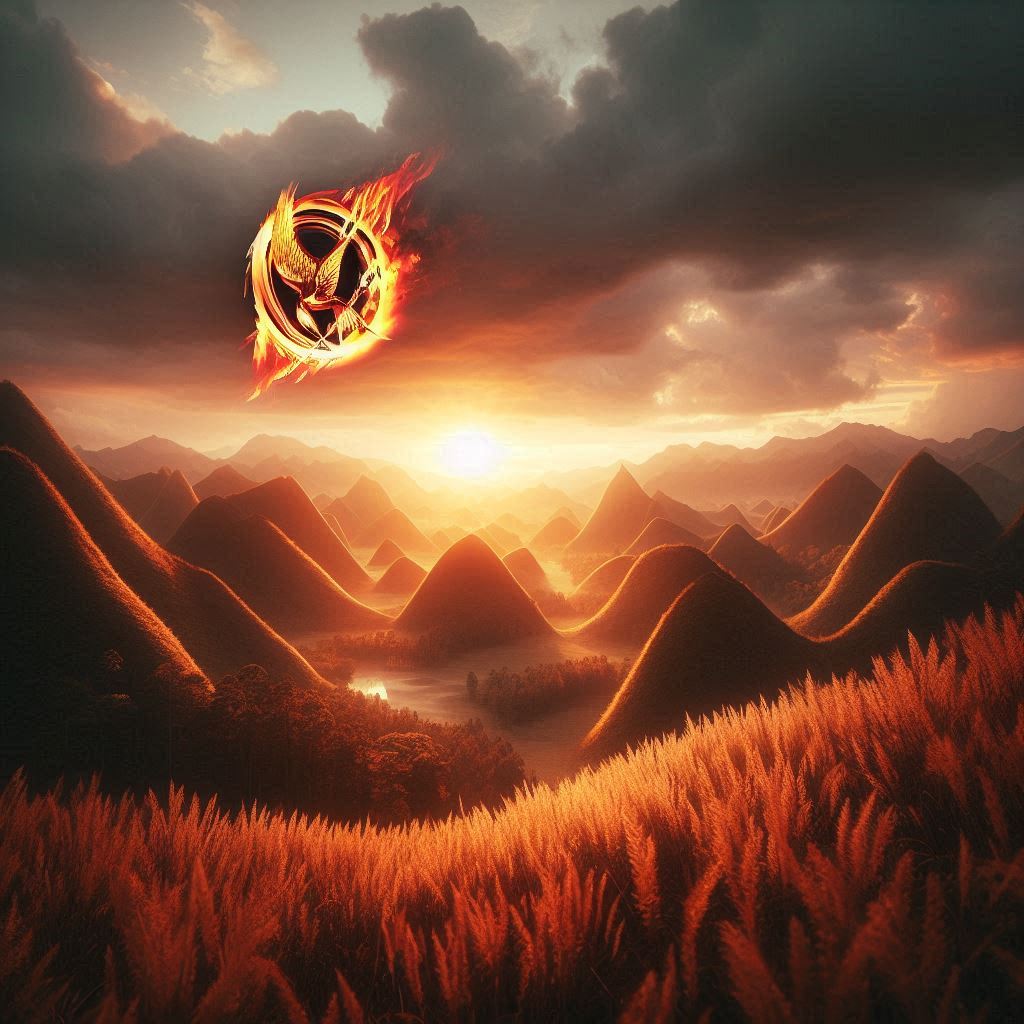— ‘Sunrise on the Reaping’ Just Reminds Us”

I finished Sunrise on the Reaping by Suzanne Collins last night, and honestly, I’m still reeling. This new prequel — centered on Haymitch Abernathy and the brutal 50th Hunger Games (aka the Second Quarter Quell) — delivers everything 12-year-old me ever wanted. It’s brutal, emotionally harrowing, and steeped in the kind of social commentary that made The Hunger Games iconic.
And if it felt darker than you expected? That’s not new. That’s the series, unfiltered.
It’s Dark — But It’s Always Been Dark
Let’s not mince words: Sunrise on the Reaping is gruesome. The violence is visceral, the deaths are soul-crushing, and the psychological toll is relentless. Some readers online have suggested this might be Collins’ way of “punishing” fans — especially those who romanticized Coriolanus Snow or Capitol aesthetics — by making this book even more painful.
But here’s the thing:
Have we forgotten what The Hunger Games actually was?
This series has always been deeply disturbing. Yes, it lived on YA shelves. But The Hunger Games was never a sanitized dystopia. It was a grim portrait of state violence, exploitation, and trauma. If Sunrise on the Reaping feels like a gut punch, it’s only because we’ve had time — and glossy movie adaptations — to forget how sharp those blows were in the first place.The Films Softened the Reality
Take the muttations from the first book. In the movies, they’re scary beasts. But in the book? They’re reanimated versions of the dead tributes — a grotesque weapon meant to break survivors emotionally, not just physically. Katniss, Peeta, and Cato aren’t just fighting monsters. They’re fighting the memory of fallen children, twisted into Capitol creations. And Cato? He doesn’t just die. He’s slowly, mercilessly torn apart, and Katniss ends his suffering only because she can’t bear to watch it continue.
Or remember Peeta losing his leg — a major injury erased in the film. Or the Avoxes, the voiceless Capitol slaves who appear only briefly on screen but carry deep symbolic weight in the novels. Their mutilation is not just background detail — it’s a chilling representation of power crushing rebellion.
Mockingjay Wasn’t a Victory Story — It Was PTSD on Every Page
People often forget that Mockingjay was arguably the darkest of them all. Katniss is not a triumphant heroine. She’s a shattered teenager thrust into the role of a revolutionary symbol, barely holding herself together. She loses friends, endures life-threatening injuries, and is manipulated by both enemies and allies. At one point, she considers killing both herself and Peeta. She’s burned, traumatized, and left to piece together a life in the ashes of war. There’s no real celebration — just survival.
Looking back, I honestly wonder how so many of us read this as tweens and teens.
Sunrise on the Reaping Isn’t a Shift — It’s a Return
If this prequel felt particularly bleak, it’s not because Suzanne Collins has changed. It’s because she’s returned us to the roots of her original message — without the soft focus of film or nostalgia to cushion the blow.
Haymitch’s story was always going to be brutal. We knew how he won — by weaponizing the arena’s force field. But now, we see the agony behind that decision. We see what the Capitol did in response to his defiance. Sunrise on the Reaping reminds us: No one wins the Hunger Games. Not really.
Even the survivors carry the scars — physical, emotional, generational.
The Hunger Games Was Never Just a Story — It Was a Warning
From the beginning, this series was never just about survival or rebellion. It was a searing critique of:
- Authoritarianism
- Propaganda
- Spectacle culture
- Our own desensitization to violence
And Sunrise on the Reaping doesn’t change that message — it deepens it.
Collins isn’t punishing readers. She’s holding up a mirror.
And maybe we needed to look again.



